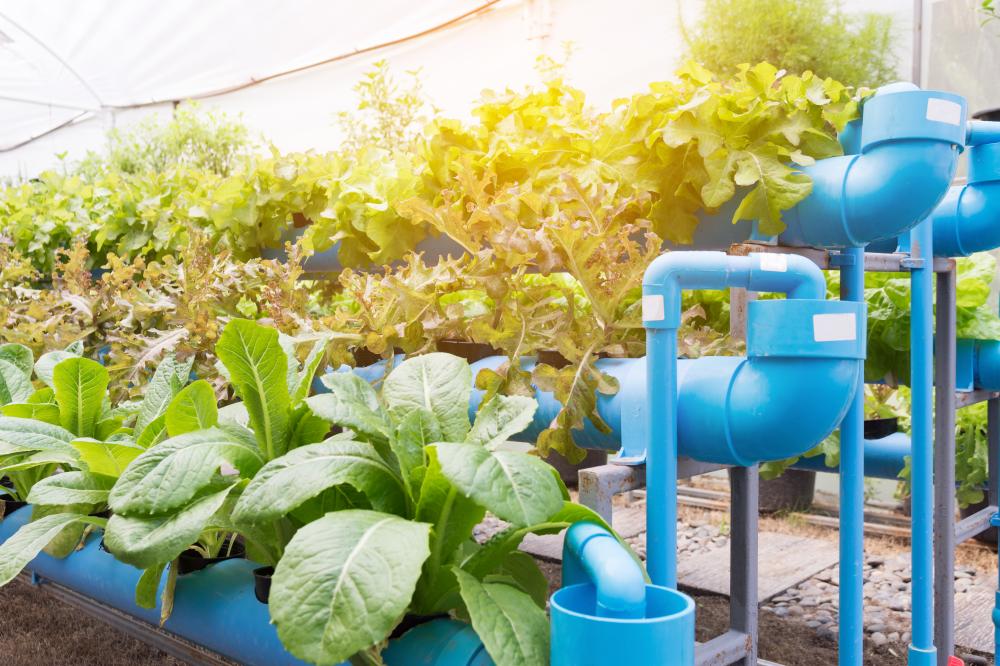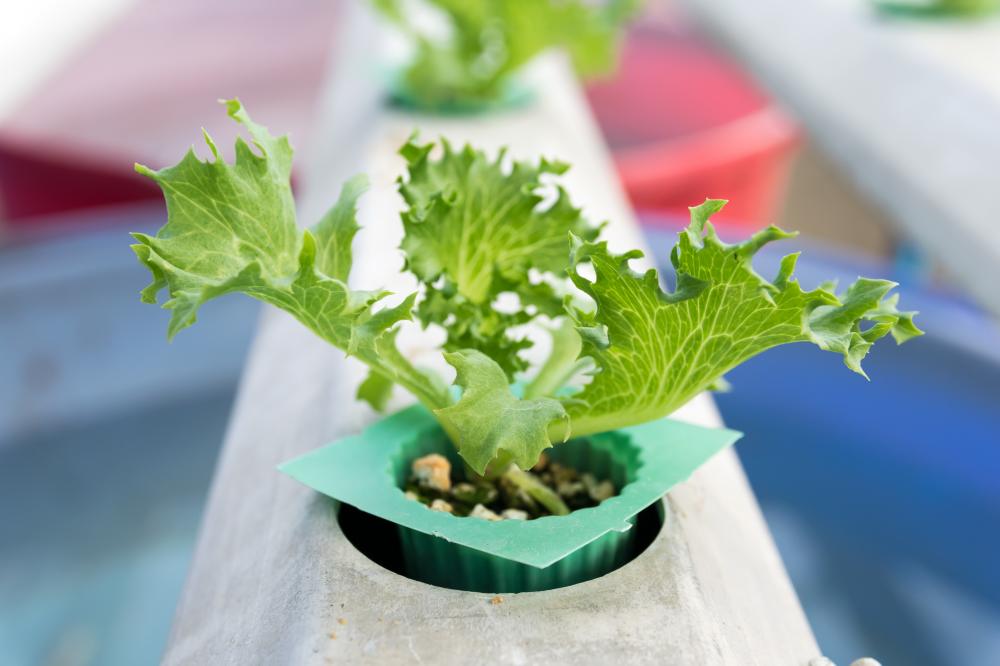
Introduction to Hydroponics
At RightFit Gardens, we’re passionate about bringing the vibrant world of hydroponics to your doorstep. Hydroponics, a method of growing plants without soil, uses a water-based nutrient solution to nurture a wide array of plants, from luscious leafy greens to bountiful fruits. It’s a technique that not only revolutionizes the way we think about farming and gardening but also brings a host of environmental and efficiency benefits.
Why Hydroponics?
Adopting hydroponics means embracing sustainability and efficiency in gardening. This method conserves water, a precious resource, by recycling it within the system. It also eliminates the need for vast tracts of arable land, making it a perfect fit for urban settings where space is at a premium. Furthermore, hydroponics can yield crops all year round, breaking the traditional boundaries of seasons.
Getting Started with Hydroponics
Choosing the Right System
Entering the world of hydroponics can seem daunting at first, but it all starts with selecting a system that fits your space and goals. From the nutrient film technique (NFT) to deep water culture (DWC), there’s a variety of systems to explore. Each system has its unique benefits, whether it’s simplicity and low maintenance or control and versatility.
Selecting Your Plants
Not all plants thrive in a hydroponic environment, so it’s crucial to choose wisely. Leafy greens like lettuce and herbs such as basil are known for their adaptability to hydroponic systems. However, with the right conditions, you can also grow a broad spectrum of plants, including tomatoes and strawberries.
Nutrient Solution Basics
The heart of hydroponics lies in its nutrient solution – water enriched with essential minerals and nutrients. This solution must be carefully managed to ensure the proper pH levels and nutrient concentrations, which vary from plant to plant. It’s a delicate balance, but when done right, it can lead to incredible yields far surpassing traditional soil-based gardening.
Hydroponic Gardening Challenges
Despite its many advantages, hydroponic gardening comes with its set of challenges. Maintaining the system can require a steep learning curve, particularly when it comes to the technical aspects of nutrient solutions and pH levels. Additionally, because the system relies heavily on electricity for lighting and water pumps, power outages can pose significant risks to your garden.
Benefits of Hydroponics
- Eco-Friendly: Uses less water and land, significantly reducing the ecological footprint.
- Higher Yields: Controlled conditions can lead to faster growth rates and higher yields.
- Space-Efficient: Ideal for urban environments where space is limited.
- Reduced Pests and Diseases: With no soil, there’s less risk of soil-borne pests and diseases.
Real-World Hydroponic Success Stories
From the bustling rooftops of urban farms to the controlled environments of scientific research stations in Antarctica, hydroponics is making waves. One of the most heartening aspects of my journey with RightFit Gardens has been witnessing the success stories. Schools incorporating hydroponic systems as educational tools have seen students flourish, gaining hands-on experience in sustainability and botany. Community gardens in urban areas have brought fresh produce to food deserts, showcasing hydroponics’ potential to transform food security.
The Future of Hydroponics
The future of hydroponics shines bright, offering a beacon of hope for sustainable and efficient agriculture. As technology advances, so too will the ease and effectiveness of hydroponic systems, making them more accessible to the average person. Moreover, as we face the challenges of climate change and urbanization, hydroponics offers solutions that could reshape our relationship with food and the environment.
At RightFit Gardens, we’re excited to be part of this green revolution. We’ve seen firsthand the joy and satisfaction that comes from hydroponic gardening, and we’re dedicated to sharing that experience with you. Whether you’re a seasoned green thumb or a curious newcomer, hydroponics offers a fascinating, rewarding journey into the world of gardening. Let’s grow together, nurturing a greener, more sustainable world one plant at a time.

What are the disadvantages of hydroponics?
While hydroponics offers a sustainable and efficient way to garden, it’s not without its challenges. One of the primary disadvantages is the initial setup cost. Compared to traditional gardening, hydroponic systems can be more expensive to install, given the need for pumps, grow lights, and nutrient solutions. Additionally, hydroponics requires a consistent power supply to maintain water flow and lighting, making gardens potentially vulnerable to power outages. There’s also a learning curve involved. Understanding the nuances of nutrient solutions and pH levels requires patience and practice. Despite these challenges, many find the benefits far outweigh the disadvantages once they become accustomed to the system’s workings.
What is hydroponics and how does it work?
Hydroponics is a revolutionary method of growing plants without soil. Instead, plants are grown in a water-based nutrient solution that provides all the essential minerals required for growth. This method allows for more efficient nutrient absorption, as plants don’t need to expend energy developing extensive root systems to search for nutrients. Hydroponics systems can vary, from simple setups using containers and air stones to more complex systems like the Nutrient Film Technique (NFT) or Deep Water Culture (DWC). These systems recycle water, conserving this vital resource while enabling year-round growing in controlled environments. The essence of hydroponics lies in creating the perfect balance of nutrients and pH levels, tailored to the specific needs of the plants being grown.
What plants can be grown hydroponically?
The beauty of hydroponics is its versatility. Leafy greens like lettuce and spinach thrive in hydroponic systems due to their relatively short root systems and quick harvest cycles. Herbs such as basil, mint, and cilantro are also excellent choices, offering fresh flavors right at your fingertips. However, the scope doesn’t end there. With the right conditions, you can grow a wide range of plants, including tomatoes, strawberries, and even peppers. The key is understanding each plant’s specific needs in terms of nutrients, light, and space. This knowledge allows for a diverse hydroponic garden that can yield a bounty of produce throughout the year.
Is hydroponic growing healthy?
Absolutely! Plants grown hydroponically are as healthy, if not healthier, than their soil-grown counterparts. Since the nutrient solution is carefully monitored and controlled, plants receive an optimal balance of minerals necessary for growth. This often results in more nutritious and flavorful produce. Moreover, because hydroponic systems are typically indoors or in greenhouses, there’s less likelihood of contamination from soil, reducing the risk of pests and diseases. This cleaner environment means there’s often no need for pesticides, making hydroponically grown produce a great choice for those looking to reduce their chemical intake. Plus, the faster growth rates and year-round production can contribute to a more consistent intake of fresh fruits and vegetables, vital for a healthy diet.
How does hydroponics contribute to sustainability?
Hydroponics plays a significant role in promoting sustainability in agriculture. By using water-based nutrient solutions, hydroponic systems use up to 90% less water than traditional agriculture, as the water is recirculated rather than lost through soil absorption. Additionally, hydroponics allows for vertical farming, which drastically reduces land use and can help mitigate deforestation and soil degradation. Furthermore, being able to grow food in controlled environments reduces the need for transportation and the associated carbon emissions, especially when hydroponic systems are set up in urban areas close to consumers. This method of gardening not only conserves resources but also opens up possibilities for fresh produce to be grown in environments previously considered unsuitable for agriculture, contributing to food security and resilience against climate change.
Can hydroponics be a viable solution for food deserts?
Hydroponics holds great promise as a solution for addressing food deserts–urban and rural areas where access to affordable and nutritious food is limited. By enabling farming in smaller, non-traditional spaces, including rooftops, balconies, and abandoned urban lots, hydroponics can bring fresh produce closer to communities that need it most. The ability to grow food year-round, regardless of seasonal changes, can also ensure a consistent supply of fresh fruits and vegetables. Schools and community centers can incorporate hydroponic systems, not only to provide food but also to educate young people about nutrition and sustainable agriculture practices. While there are challenges, such as initial setup costs and the need for technical knowledge, the potential benefits of hydroponics in transforming food access in underserved communities are immense. By tailoring systems to meet local needs and investing in community education, hydroponics can be a cornerstone in the fight against food insecurity.
Hydroponics Resources
- USDA National Agricultural Library – Hydroponics: A comprehensive guide to hydroponic farming and gardening from the United States Department of Agriculture. Learn more
- University of Arizona Controlled Environment Agriculture Center: Research and resources on hydroponics and controlled environment agriculture from a leading educational institution. Explore here
- United Nations Food and Agriculture Organization – Hydroponics: Information on hydroponic farming and its potential for sustainable food production globally. Read more
- Ohio State University Extension – Hydroponics Fact Sheet: A fact sheet providing an overview of hydroponic systems and their benefits. Check it out

